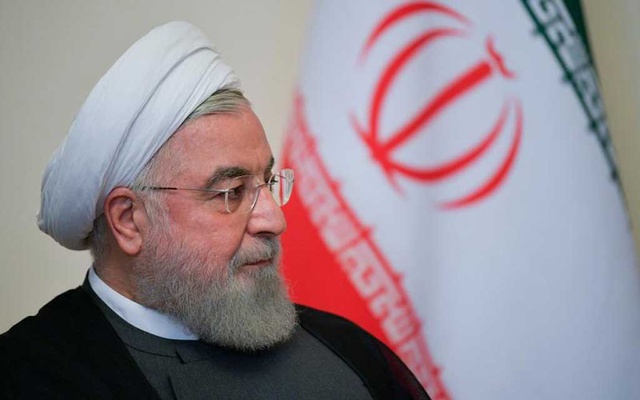
Iran has breached many restrictions imposed by a 2015 deal on its atomic activities in response to former president Donald Trump’s withdrawal from the deal in 2018. The two nations have laid out tough stances at indirect talks in Vienna this week on how to bring both back into full compliance with the accord.
A live video link carried on state TV showed Rouhani ordering the injection of uranium gas into 164 IR-6 centrifuges, 30 IR-5 centrifuges, and mechanical tests on IR-9 machines with the capacity of 50 early IR-1 machines – a likely new breach of the nuclear deal.
The ceremony unveiled 133 advances over the past year in the country’s nuclear industry mostly in the fields of medicine, power, agricultural and energy, state television said.
“Once again, I stress that all our nuclear activities are peaceful and for non-military purposes,” Rouhani said in televised remarks.
“We continue to be committed to our pledge to NPT (non-proliferation treaty) and to the world not to deviate militarily from our nuclear programme,” Rouhani said.
The talks in Vienna, in which European Union officials are shuttling between the remaining parties to the deal and the United States, aim to restore the bargain at the core of the agreement – restrictions on Iran’s nuclear activities in exchange for the lifting of US and other international sanctions.
The United States was the first to renege on that bargain under Trump, who vehemently opposed the deal and sought to wreck it. He pulled out, reimposed the sanctions that were lifted, and brought in many more. Iran responded by breaching many of the nuclear restrictions.
